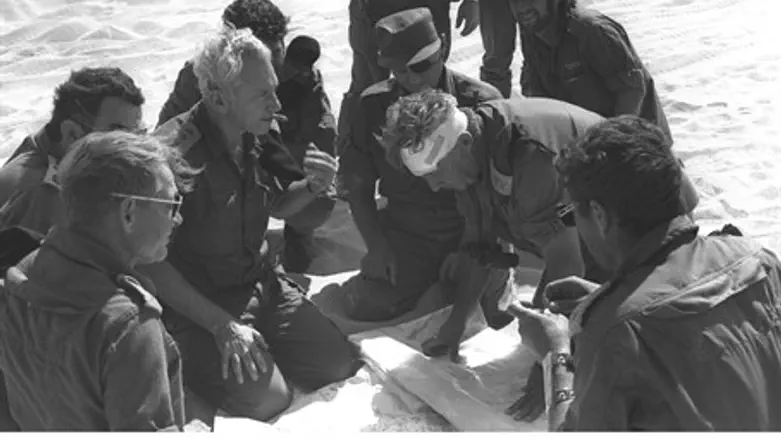
Former IDF Colonel Moshe Givati recently took another step forward in a long-term project aimed at learning from Israel’s past wars. In an interview with Arutz Sheva he discussed his findings, and warned that what he sees today looks frightening like the situation prior to 1973.
Givati has chronicled his findings in a series of books, the latest of which is Hisardut B’September (Surviving September), a book about the Yom Kippur War in 1973.
The biggest lesson from the Yom Kippur War is that it is critical to avoid complacency, he said. The euphoria that followed the Six Day War in 1967, and a disrespect for Israel’s enemies following the relatively easy victory, meant Israel was not prepared for the hard blow that followed, he said.
“We didn’t lose,” he noted. “We were victorious, to the extent that it can be called ‘victory’ given the painful price we paid in human life.”
“IDF soldiers paid with their bodies and souls for the fact that top commanders and diplomats had been asleep,” he said.
Givati explained that his goal in writing his series on Israel’s wars is to ensure that the painful lessons Israel learned are not forgotten. Some are already being ignored, he said.
In particular, he said, the complacency that was so dangerous prior to 1973 appears to have made a return. The Air Force and IDF Intelligence in particular must be on alert, he warned.
Givati had additional advice for today’s soldiers, based not on past wars but on his own personal, painful experience in the IDF.
Givati was forced to resign from the military in the 1990s following an incident which saw him accused in the media of killing an Arab boy. In fact, the “boy” in question had been carrying out a terrorist attack shortly before his death, and was killed while fleeing from soldiers.
While he was not present during the incident, Givati took responsibility as the commander of the unit involved. His acceptance of responsibility was portrayed in the media as a confession of murder.
He noted that the media was only part of the problem. Top IDF commanders failed to back him, he said. Among those who, he said, pushed him out of the army was Amram Mitzna, who he termed “a politician-general who hates settlers.”
Mitzna went on to serve in the Labor party, and was recently elected to Knesset with Tzipi Livni’s Hatnua faction.
Despite his difficult experience, Givati urged today’s soldiers and commanders not to fear the media when they engage terrorists. Commanders must obey the law, but must not fear to take assertive action and to do what they must do in order to complete the mission, he said.